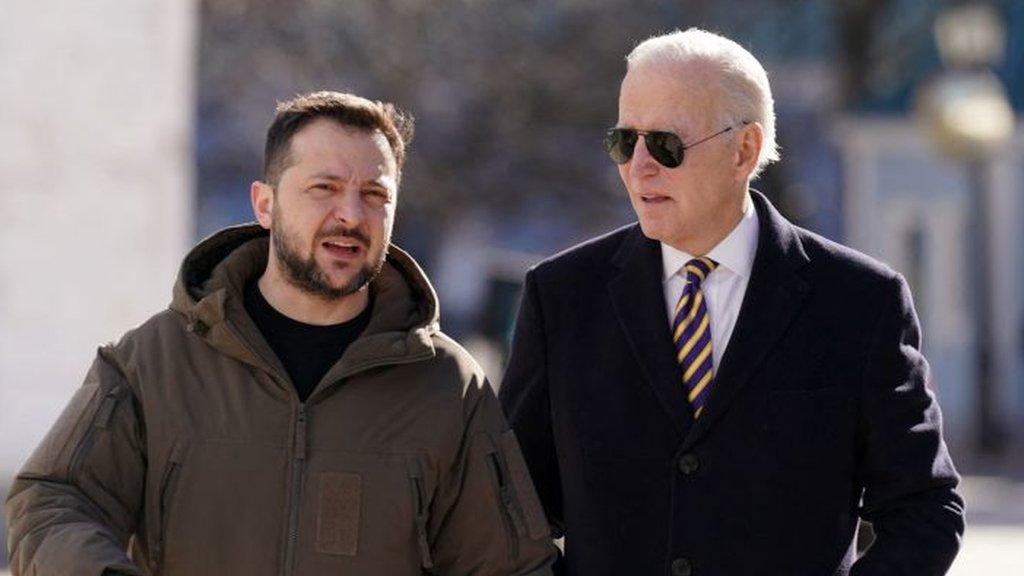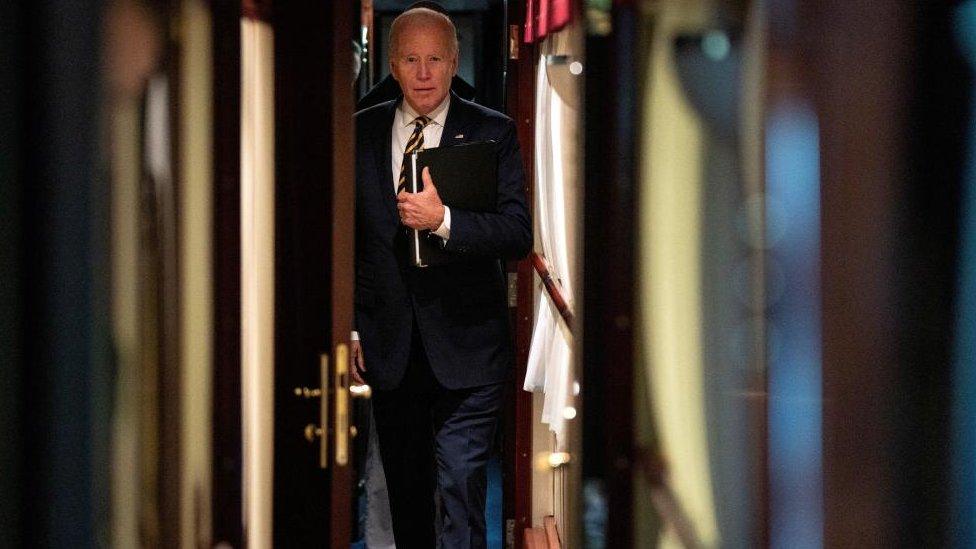US diplomat on what it's like negotiating with Putin
- Published
Putin won't surrender easily, says US diplomat John Sullivan
The former US ambassador to Russia has told the BBC what it's like trying to negotiate with the Kremlin and why President Vladimir Putin won't give up easily in Ukraine.
John Sullivan was America's man in Moscow in the run-up to the Russian invasion of Ukraine.
The former US ambassador is the one who had conversations with Russian officials about trying to prevent a war, but "there was no engagement", he said.
"They demanded security guarantees for Russia but wouldn't talk constructively about security for Ukraine. They never moved beyond their talking points… it was a charade."
When I ask whether the US should work harder at continuing those conversations to try to end the conflict, he tells me that President Vladimir Putin "wasn't interested in negotiating before the war. He's still not interested in negotiating".
Instead, the Biden administration has focused on rallying global support for arming Ukraine and sanctioning Russia, itself shipping billions of dollars of weapons to the country.
In a speech on Tuesday, Mr Putin repeated his view that the West had started the war, that it was using Ukraine to try to inflict a "strategic defeat" on Moscow, and that Russia, not Ukraine, was fighting for its very existence.
Despite the failures of Moscow's self-declared special military operation, Mr Sullivan says the goals initially declared by the Kremlin remain the same - to "de-Nazify" and "demilitarise" Ukraine. He interprets that as "removing the government in Kyiv and subjugating the Ukrainian people".
This is part of a vision that President Putin has outlined to re-gather the Russian peoples that were separated by the collapse of the Soviet Union.
"He can't have a democratically elected government, particularly one led by President [Volodymyr] Zelensky, in Kyiv," says Mr Sullivan. "He will never be satisfied as long as that government exists because he considers it a threat to Russia and to his vision of this larger Russian state he's trying to create."
So what, then, would it take for Mr Putin to stop the war?
"He has to be convinced that he can't win," says Mr Sullivan. "He's going to double down until he's convinced that there's just no way he can win. I'm not sure how significant the battlefield setbacks have to be for him to reach that point, but he's nowhere near that today."
Watch: Putin and Biden's speeches compared in under a minute
Mr Sullivan says the Russian leader has a long-time horizon, and "a vision for what he wants to accomplish that he will not surrender easily".
Neither, though, will the Ukrainians, Mr Sullivan believes, declaring one of the strategic failures of Mr Putin's war to be alienating the Slavic nation of 44 million people.
"The Ukrainian people aren't going to forgive and forget," he says. "Even if President Zelenksy wanted to end the war, wanted to make territorial concessions, basically wanted to surrender, the Ukrainian people wouldn't let him."
With such a military, political and ideological standoff, the US has to be prepared for a long war.
President Joe Biden underlined America's commitment by making a surprise visit to Kyiv on the anniversary of the invasion, but Mr Sullivan does not expect the conflict to end this year.
"Beyond that I don't know," he says. "But [Mr Putin] doesn't want an off-ramp. The goals of this special military operation will be achieved. He says that all the time."
Related topics
- Published21 February 2023

- Published20 February 2023
